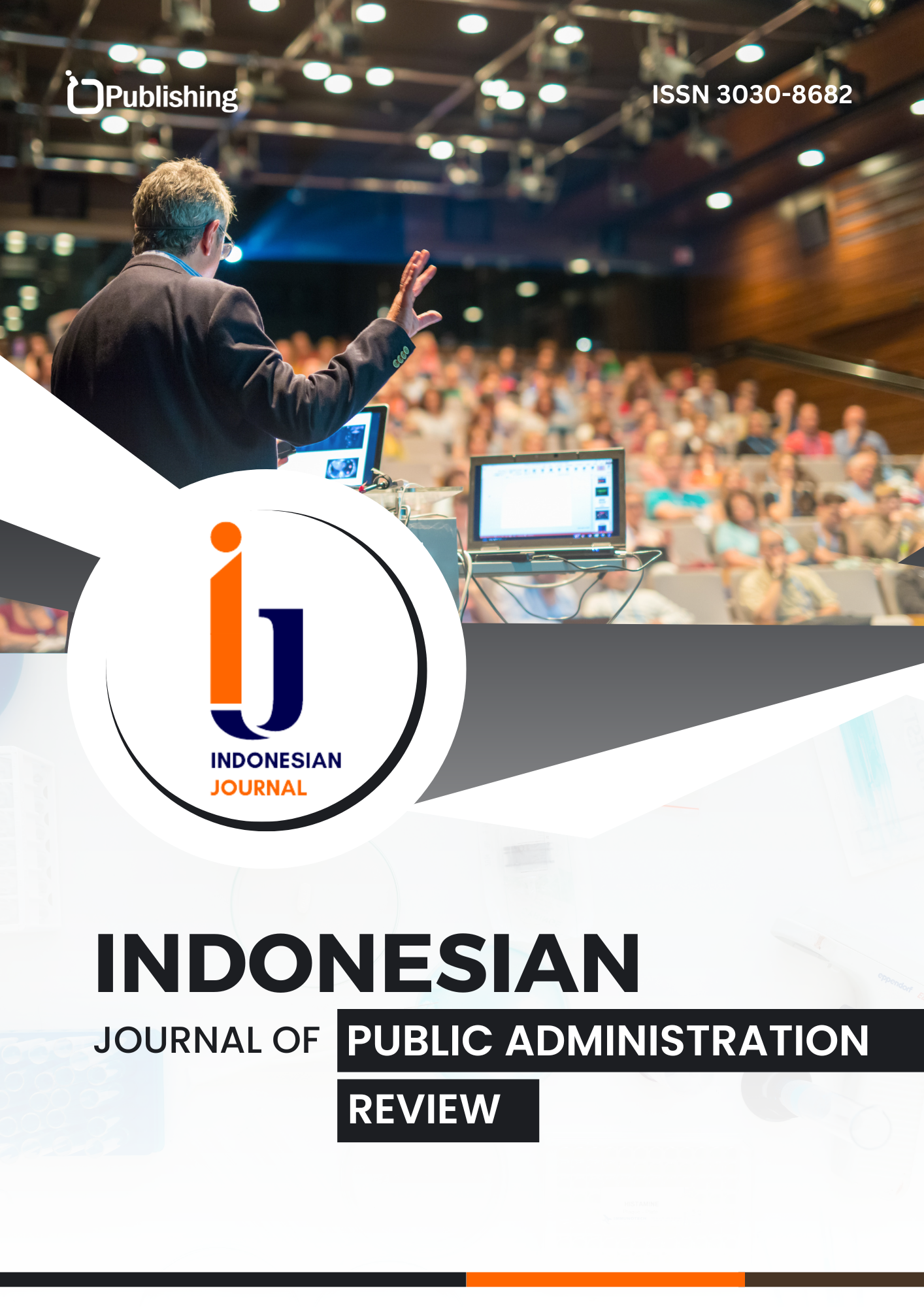The Role of the General Election Commission (KPU) of Karanganyar in Increasing Voter Participation in the 2024 Presidential and Vice Presidential Elections and Legislative Elections
DOI:
https://doi.org/10.47134/par.v2i2.3767Keywords:
Role, General Election, Community ParticipationAbstract
The General Election Commission (KPU) as one of the organizers of the general election, has strategic and tactical duties. This is in accordance with Article 2 of Law number 7 of 2017 concerning general elections. The General Election Commission (KPU) Karanganyar is the election organizer based in Karanganyar Regency. As the election organizer, the General Election Commission (KPU) Karanganyar is tasked with conducting elections and regional head elections based on the provisions regulated by law. This research aims to describe the role of the Karanganyar General Election Commission in increasing voter participation in the 2024 presidential, vice-presidential, and legislative elections. This research method is qualitative. In this research, the technique used for selecting informants is purposive, which falls under the category of non-probability sampling. The researchers considered using this technique because the informants have a capacity for information mastery and careful consideration of the research focus. The collected data will then be analyzed using interactive analysis techniques. The role of the Regulator is carried out through various regulations used by the General Election Commission of Karanganyar Regency to enhance public participation in exercising their voting rights in the 2024 presidential and legislative elections. These regulations are included in the General Election Law, the Decision of the Indonesian General Election Commission (KPU RI), and the Regulations of the Indonesian General Election Commission (KPU RI).The role of the Facilitator is carried out through the Facilitation of the Karanganyar Regency General Election Commission in order to increase voter participation through the Student Council President Election (MILKOI). The General Election Commission (KPU) of Karanganyar Regency facilitated the organization of student council president elections in high schools and equivalent institutions in Karanganyar Regency. The role of the catalyst has been carried out by the General Election Commission (KPU) of Karanganyar Regency. The role of the catalyst includes organizing socialization for community groups about the stages of the general election, recruiting democracy volunteers, intensive communication with stakeholders, and optimizing the recruitment of Ad Hoc bodies based on socialization to the community and social media.
References
Asrulla, A., Risnita, R., Jailani, M. S., & Jeka, F. (2023). Population and sampling (quantitative), as well as the selection of key informants (qualitative) in a practical approach. Tambusai Education Journal, 7(3), 26320-26332.
Haris, S. (2014). Parties, elections, and parliament in the reform era. Yayasan Pustaka Obor Indonesia.
Hoesein, Z. A. (2023). Voter Determination in the General Election System. PT. RajaGrafindo Persada-Rajawali Pers.
https://kab-karanganyar.kpu.go.id/ accessed on August 15, 2024 at 10:23 AM WIB.
Kirana, D. K., Setiawan, M. O. E., & Priza, S. (2024). Indonesian Democracy in the Capacity of Free and Fair Elections. Journal of Law and Social Society, 1(1), 11-26.
M. Ryaas Rasyid. (2002). Regional Autonomy in a Unitary State. Pustaka Pelajar, Jakarta.
Marhum, U., & Meronda, M. (2021). Community Participation in the Formation of Village Regulations According to Law Number 6 of 2014: A Case Study of Wawongsangula Village, Puriala District, Konawe, Southeast Sulawesi. Journal of Economics, Social & Humanities, 2(12), 141-149.
Mifta Thoha. (2012). Organizational Behavior: Basic Concepts and Implications. Jakarta: PT Raja Grafindo Persada.
Miles, M. B., Huberman, A. M., & Saldana, J. (2018). Análisis de Datos Cualitativos. (Cuarta Ed.). SAGE Publication Ltd.
Mufidah, A., & Syarofi, A. (2024). The Relationship Between Political Party Democracy in Elections in Indonesia: (In the Review of Political Sociology). The Republic: Journal of Constitutional Law, 2(1), 35-51.
Muslih, M. (2017). Implications of the Implementation of Law No. 32 of 2004 on Regional Government in Jambi Province (the case of direct regional elections in relation to Regional Autonomy). Scientific Journal of Batanghari University Jambi, 9(2), 47-53.
Peter Burke & Jane Stets. (1998). Teoría de la Identidad y la Identidad Social. Teoría. Pullman: Departamento de Sociología, Universidad Estatal de Washington.
Pito. (2007). Understanding Political Theories and Political Systems up to Corruption. Bandung: Nuansa.
Saleh, A. M. (2016). Challenges and Solutions in Increasing Voter Participation in Elections in Indonesia. Jurnal Thengkyang, 1(1).
Sastrawati, N. (2019). Political participation in the conception of rational choice theory James S Coleman. Al-Risalah, 19(2), 187-197.
Simamora, J. (2014). Welcoming the simultaneous election regime. Jurnal Rechtsvinding, 3(1), 21.
Srimranani, C. E. (2022). The Role of the Klaten Regency Government in Implementing Performance-Based Budgets to Achieve Good Governance (Doctoral dissertation, Atma Jaya Yogyakarta University).
Tanjung, T. (2023). Understanding the Open Proportional System in Indonesia Towards the 2024 General Election. BULLET: Journal of Multidisciplinary Sciences, 2(1), 125-133.
Waruwu, M. (2023). Educational research approaches: qualitative research methods, quantitative research methods, and mixed methods research. Tambusai Education Journal, 7(1), 2896-2910.
Zein, M. H. M. (2023). Transformation of Bureaucracy in the 4.0 Era. Sada Kurnia Pustaka.
Downloads
Published
How to Cite
License
Copyright (c) 2025 Farco Siswiyanto Raharjo, Purbayakti Kusuma Wijayanto, Febri Yudistira

This work is licensed under a Creative Commons Attribution 4.0 International License.










